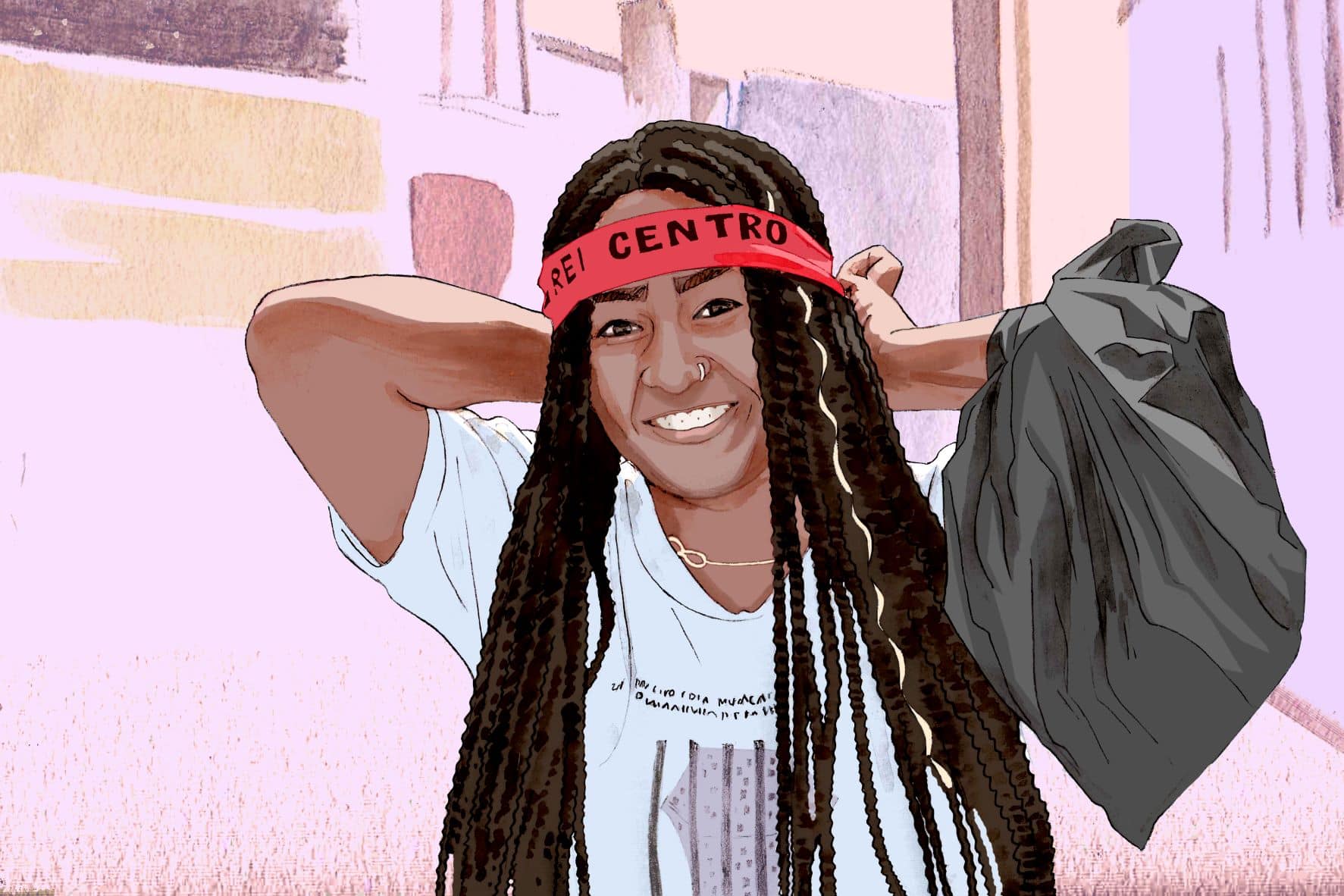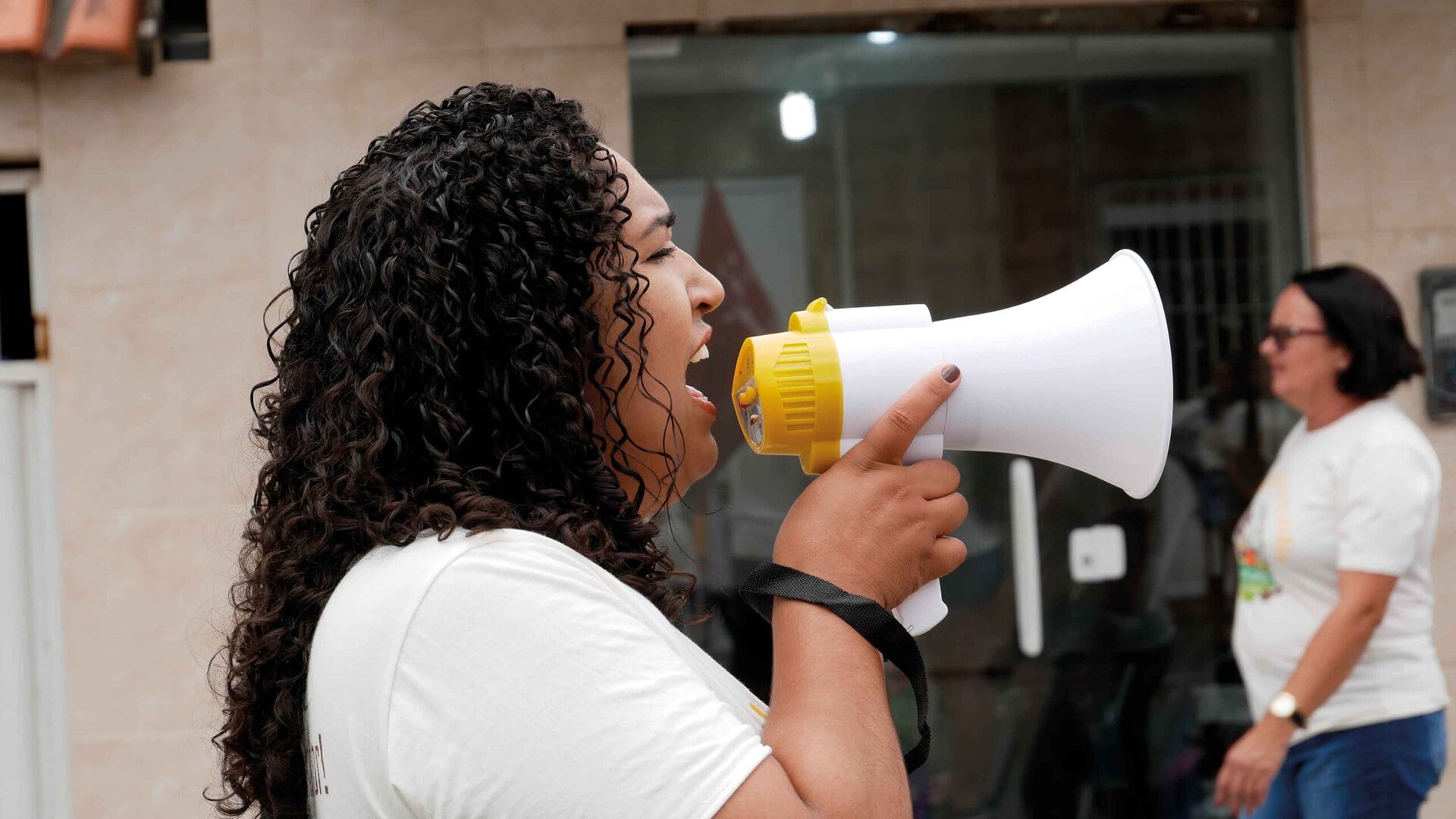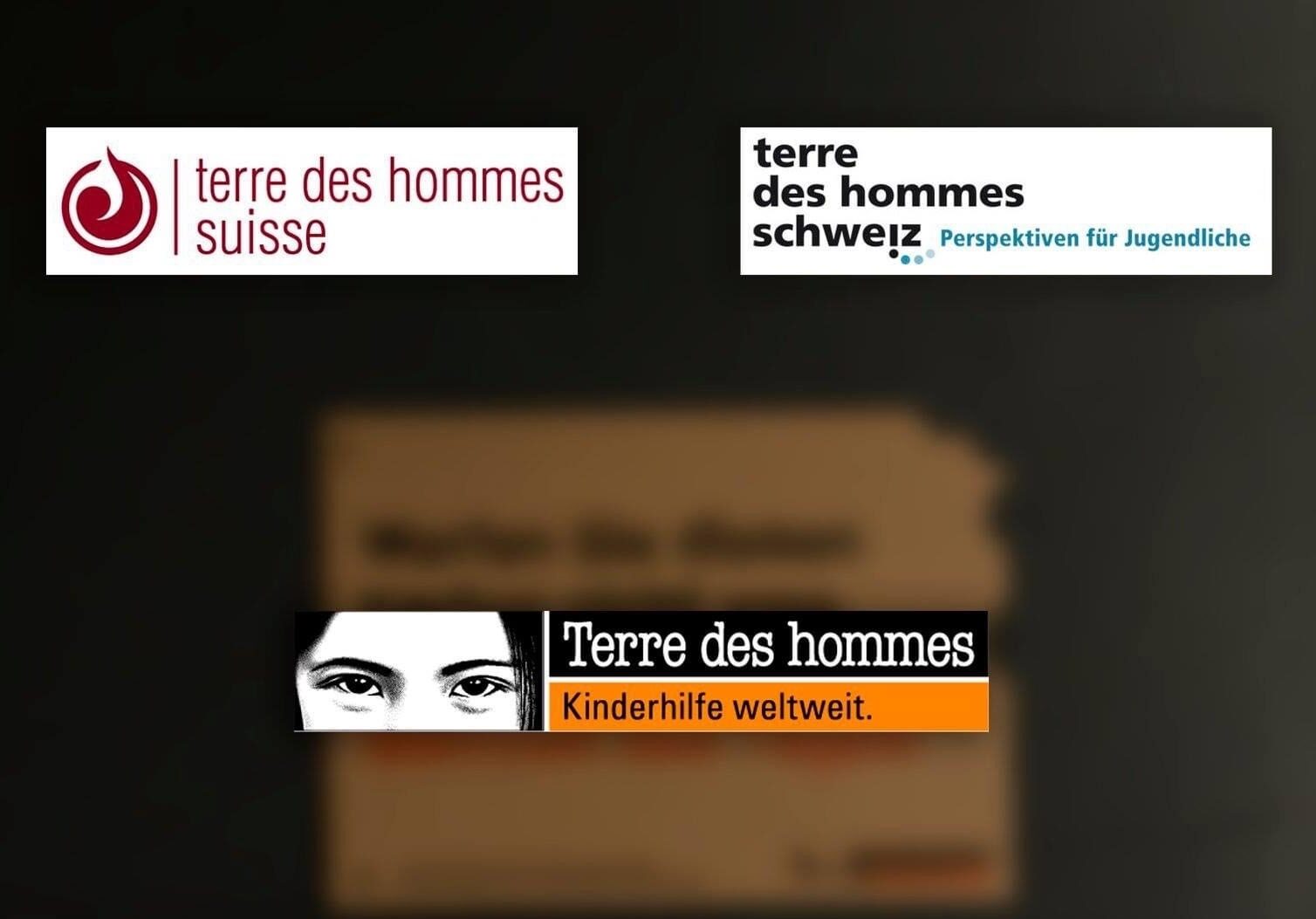Lucas Leão is a poet and human rights activist. His colleague Cassiane Paixão works as a political advisor and is involved in social movements. Both are young, of Afro-Brazilian origin and are involved with CIPÓ. This partner organization of terre des hommes schweiz works with disadvantaged black young people in Salvador on the topic of violence prevention. The large city of Salvador is located in the state of Bahia in north-eastern Brazil. In the interview, Lucas and Cassiane talk about how they live in constant fear of violence as black people. At CIPÓ, young Afro-Brazilians like Lucas and Cassiane learn about their basic human rights and the mechanisms of politics and justice in Brazil. This strengthens them as actors for a fairer society.
Lucas Leão, Cassiane Paixão – thank you for your openness and for taking the time for this interview. Please introduce yourselves briefly.
Lucas: My name is Lucas Leão, known as Urubu do Quilombo*. I’m a poet and activist and I’m taking part in the 2021 CIPÓ course on “Black Youth and Political Participation”.
Cassiane: My name is Cassiane Paixão. I first took part in a CIPÓ training course in Salvador three years ago. That’s how I got to know the social movements for peaceful coexistence in our society. Today, I am part of the Coletivo Incomode (youth organization against violence against young people, editor’s note) and the homeless movement in Bahia. Through my involvement with CIPÓ, I got a political mandate as a parliamentary advisor in my district. Here I work in the department for the defense of the rights of black youths.
What significance does CIPÓ, terre des hommes schweiz ‘s Brazilian partner organization in the field of violence prevention, have for you?
Cassiane: CIPÓ is important for my personal and professional life. I learned about the mechanisms of politics and racism here. In video workshops, we looked at the underlying causes of state violence in the favelas (editor’s note). We investigated how to recognize structural violence. We interviewed the parents of black youths whose children were killed by the police – the cases were never investigated! This work was extremely instructive and also upsetting. So I decided to get to the bottom of the “problem of black youth” in our country.
Lucas: CIPÓ creates community and encourages people to think about our society. The young people who take part in CIPÓ become social and political actors for a fairer society.
How did you become aware of CIPÓ’s work?
Cassiane: That was in 2015, when my sister took part in a course with CIPÓ on political participation. I then helped out as a volunteer and led a discussion on the culture of peace in schools, for example. In 2017, we launched the Coletivo Incomode. We want to bring cases of police abuse in Salvador to light so that those responsible are held accountable.
Lucas: When I was a child, I lived with my mother and grandmother in Quilombo do Paraiso (suburban community of Salvador, editor’s note). We were the target of great violence and repression by the police. I remember going to school and when I came back, the police had torn down our huts. I must have been about eight years old and I thought: I have to do something about this violence! I later came to CIPÓ through the Coletivo Incomode.

In the study “Stop killing us!”, terre des hommes schweiz documents cases of unscrupulous police violence in Brazil. What are your experiences with the security apparatus and the authorities?
Lucas: I have always been targeted by the police. As a child, I saw on TV how a Brazilian man was killed by the police in Europe. He had the same skin color as me. I thought: When I grow up, that will happen to me too.
My brother and I are hardly ever out and about together anymore, because every time we are approached by the police as suspects. We are considered “dangerous to the state”. I realized that whether or not you actually break the law as a black youth, we are a priori considered “criminals”. My black body is a target. No matter who I am and whether I am loved, whether I am a poet or a human rights activist – for the police, I am an “outlaw”.
The state sees us as black sheep just waiting to be slaughtered. It wants us in slave quarters. The slave quarters used to be physical, now they are psychological. Black people are trapped in these ghettos and we are afraid to go out and move freely. When I was a child, my mother would always tell me I had to be home by six o’clock at night. All black families in Bahia know this fear.
How do you deal with this constant fear?
We black people need a survival manual. For example, a friend of mine never wears a shirt when he goes out. I thought that was his style. He, on the other hand, said that without a shirt he was showing that he was unarmed. This friend of mine can’t even go to school. He can’t go to school in his own neighborhood because the gangs are fighting. And he can’t go to school in the other neighborhood because the police won’t let him in.
Another example: I wanted to go shopping in the supermarket. The policeman pointed his gun at me and forced me to leave. He then called three security guards, who knocked me to the ground and insulted me in the worst possible way.
My white friends and colleagues are never humiliated by the police. I myself have stopped counting how often I am harassed by the police. The police slapped my brother even before he became a criminal. They killed his dignity.
According to the study by terre des hommes schweiz, the number of deaths from police violence in Brazil has risen continuously since 2013. A quarter of those killed in 2019 were under the age of 19. What do these figures tell you?
Cassiane: I live in a neighborhood that is considered one of the most violent in Salvador. We experience repression and violence from the police all the time. Last week, seven young people were killed at once. Today I know that the security forces are supposed to “eliminate” black youths in our favela on government orders. Something like this must not happen, neither for my family nor for other people’s families!
Has the pandemic increased official violence against black people?
Lucas: Bahia is one of the four states with the highest rate of violent deaths in Brazil. I’m more afraid of gun violence than Covid-19. On the health issue, black people know from their own experience what it’s like to go to the hospital and be ignored or treated with indifference.
What do you think of the Brazilian president?
Cassiane: I’m not afraid of Bolsonaro. I’m afraid of those who voted for him and support him.
Brazil is an important transshipment point for illegal drugs, and people in poor neighborhoods play an important role in trafficking them. Are police raids in the favelas not understandable?
Lucas: We see things too narrowly if we only look at the role of the police. In Salvador, armed vigilante groups are a dangerous parallel force to the police and this problem is deeper than we think. It is these militia groups that use police divisions for their campaign of destruction in the favelas. The deal is: the vigilante groups “dispose” of the bodies of those killed, who are then considered “disappeared”. And the police blame the illegal drug trade for these murders.
The drug war is an excuse for the security forces to kill black people and make money. I have seen police officers dealing drugs several times instead of stopping this business. Drug-related crime provides the police with additional income, as I see every day in my neighborhood. But nobody stands up: Because we know how dangerous it is to tell the truth. Anyone who makes a report risks their life. The police leadership is corrupt. As a child, I saw officers dealing drugs in bars and thought it was normal. But it’s just absurd!
Cassiane: My observation is that although police operations have decreased since the outbreak of the pandemic, the “disappearances” of young people have increased. The police don’t come flying in by helicopter, they come in hoods and plain clothes. Many officers live among us. They are careful not to take part in official police operations so as not to be recognized by the population. However, the real drug lords come from out of town.
terre des hommes schweiz is campaigning against arms exports to Brazil. What do you think?
Lucas: That doesn’t surprise me. The Brazilian state is investing in weapons, military vehicles, drones. They use the power of war to attack us. Who cares where the weapons of war come from? Foreign armaments simply have a different color or design.
Cassiane: Our country is investing in anything but a good life for the general population. It is investing in a state war against black Brazilians. Armed patrols have long been part of our streetscape, but with increasing violence, there are more and more armed people.
Finally: What is your biggest request to the government and authorities in Brazil?
Cassiane: We live with the constant fear of being killed at any time. But we can’t remain silent, someone has to fight for these young people. We have to give a voice to those who have been killed. Racism against black Brazilians must stop!
Lucas: We need non-violent struggle, but also access to information, education and culture. And we need democratic structures at local level, because otherwise we won’t be able to move in a good direction. Our government will never voluntarily give me a vote. But that is precisely my fondest wish.
Lucas and Cassiane, thank you for the interview.
Interview: Fabiana Kuriki and Anna Wegelin; Illustrations Lucas and Cassiane: Hannes Nüsseler, Basel
About CIPÓ
With our partner organization CIPÓ (Comunicação Interativa, port. for: Interactive Communication) we contribute to the UN goal 16 of the Agenda 2030 for sustainable development: peace, justice and strong institutions.
More information about the project
*Urubu di Quilombo means vulture of Quilombo in Portuguese. Quilombo was the name given to a settlement of escaped black slaves in Brazil at the time of Portuguese rule. The word quilombo comes from the African Bantu languages Kikongo and Kimbundu and means settlement.



